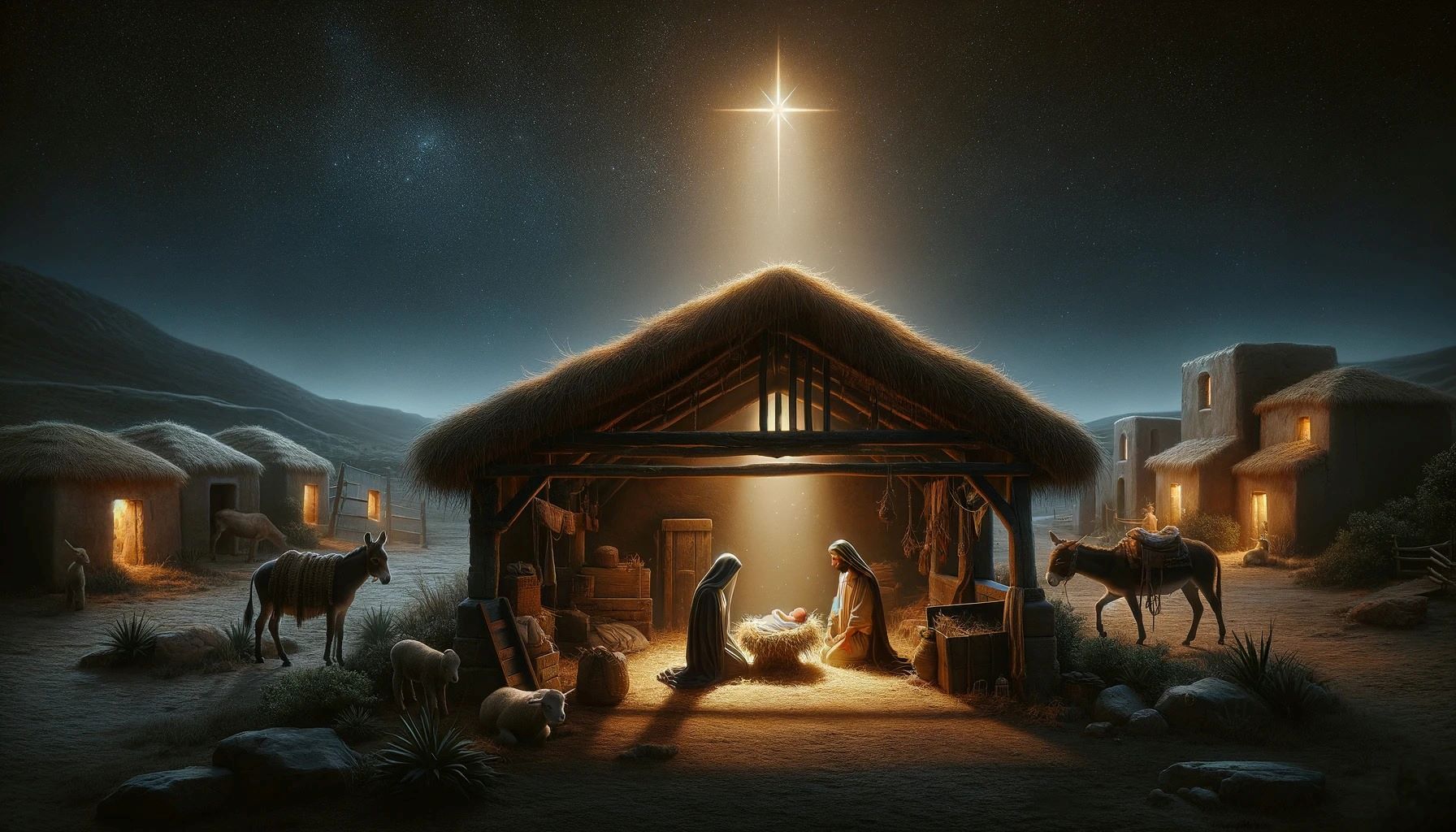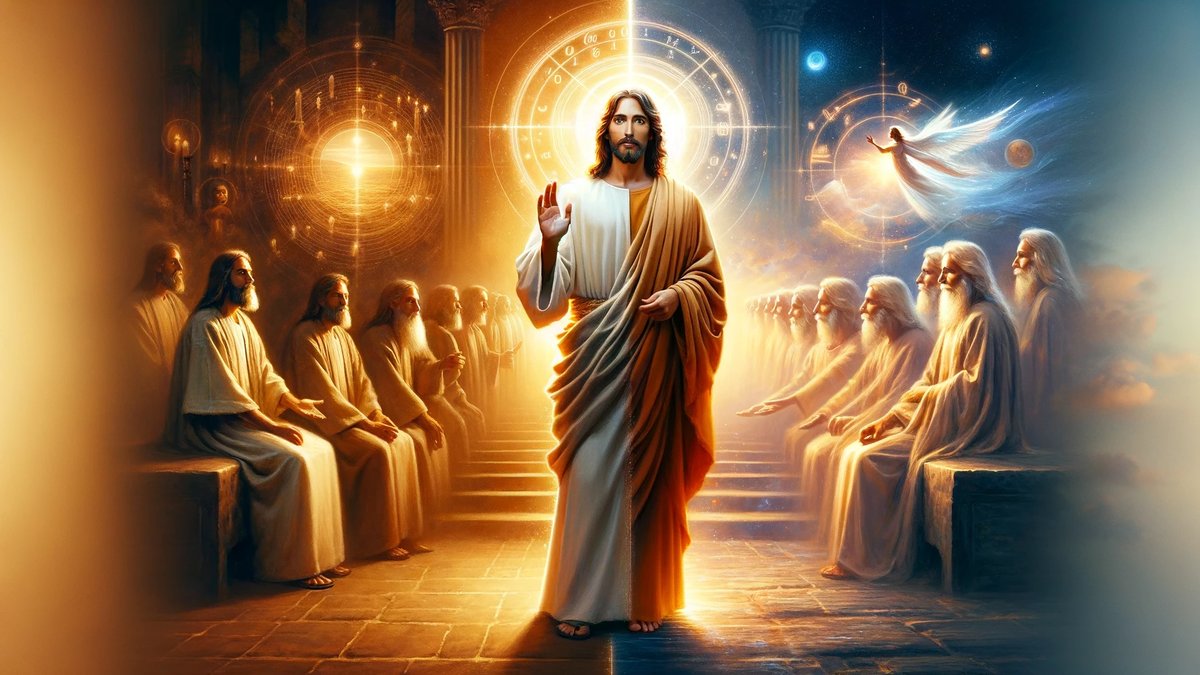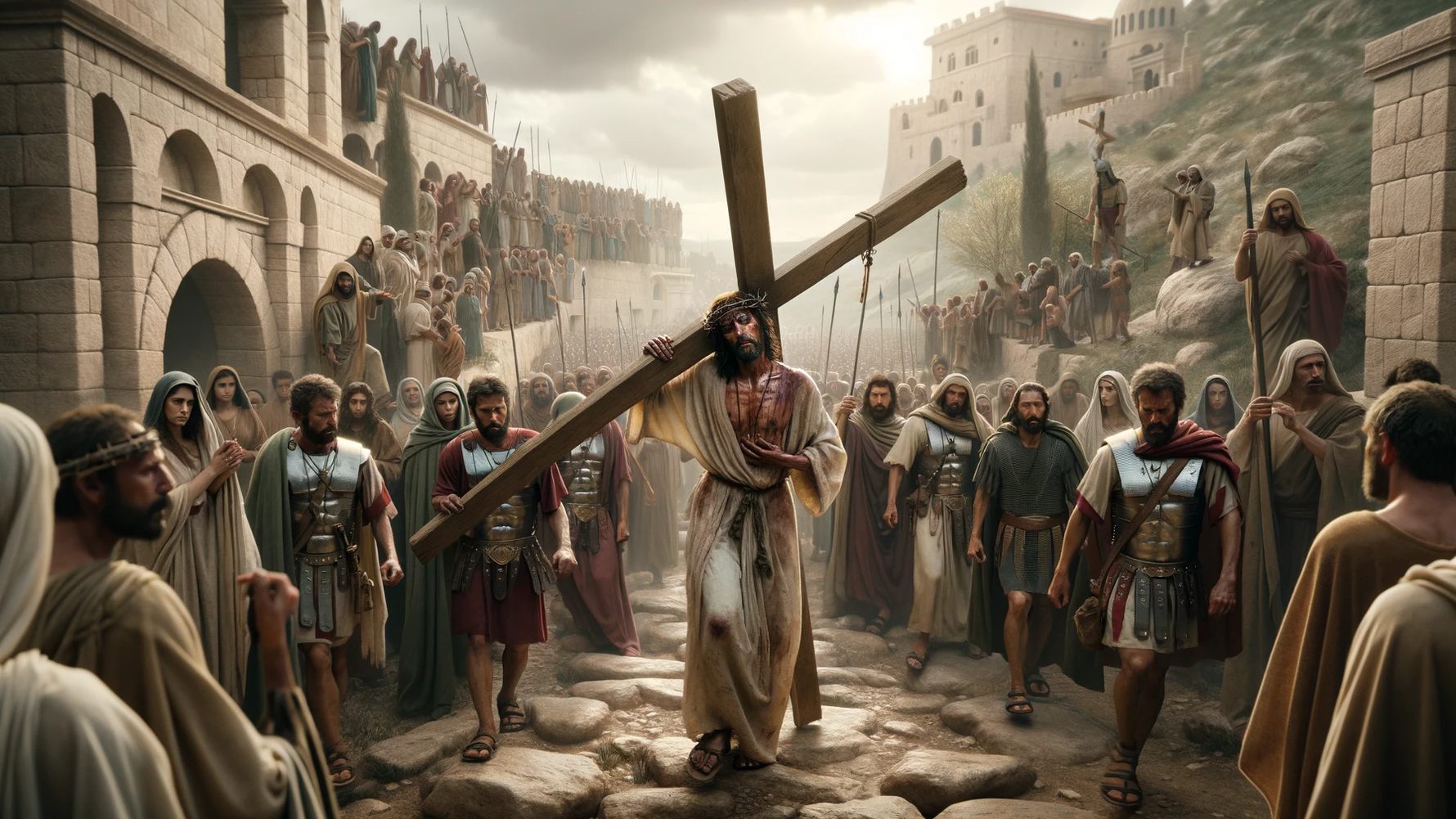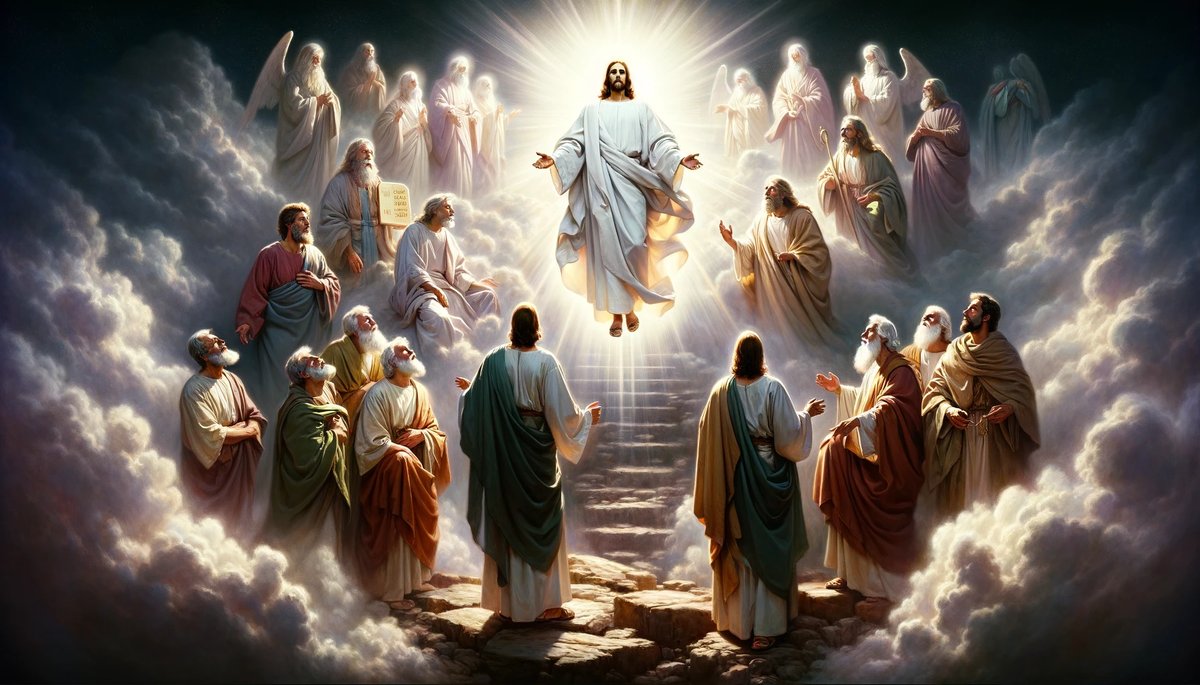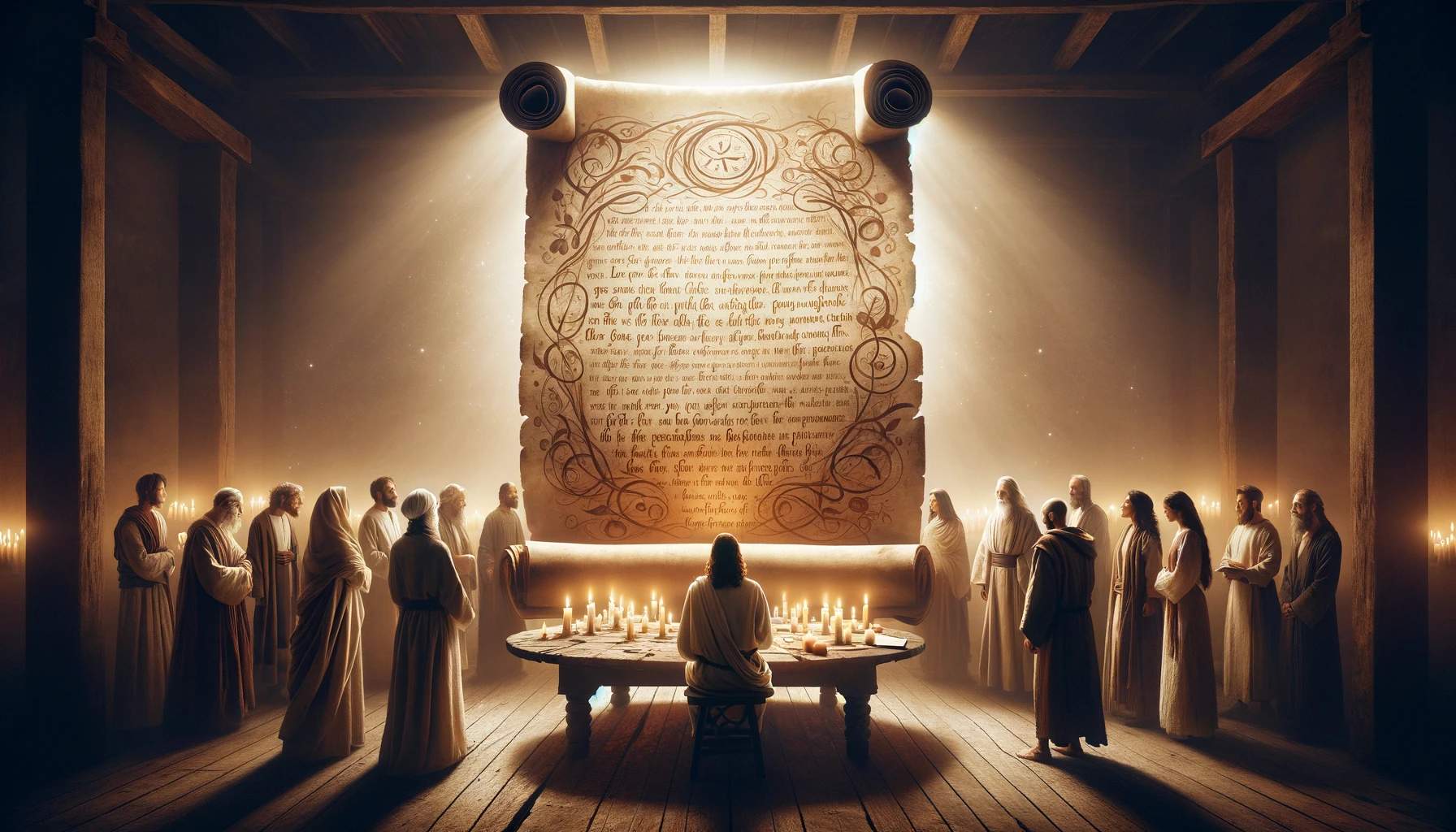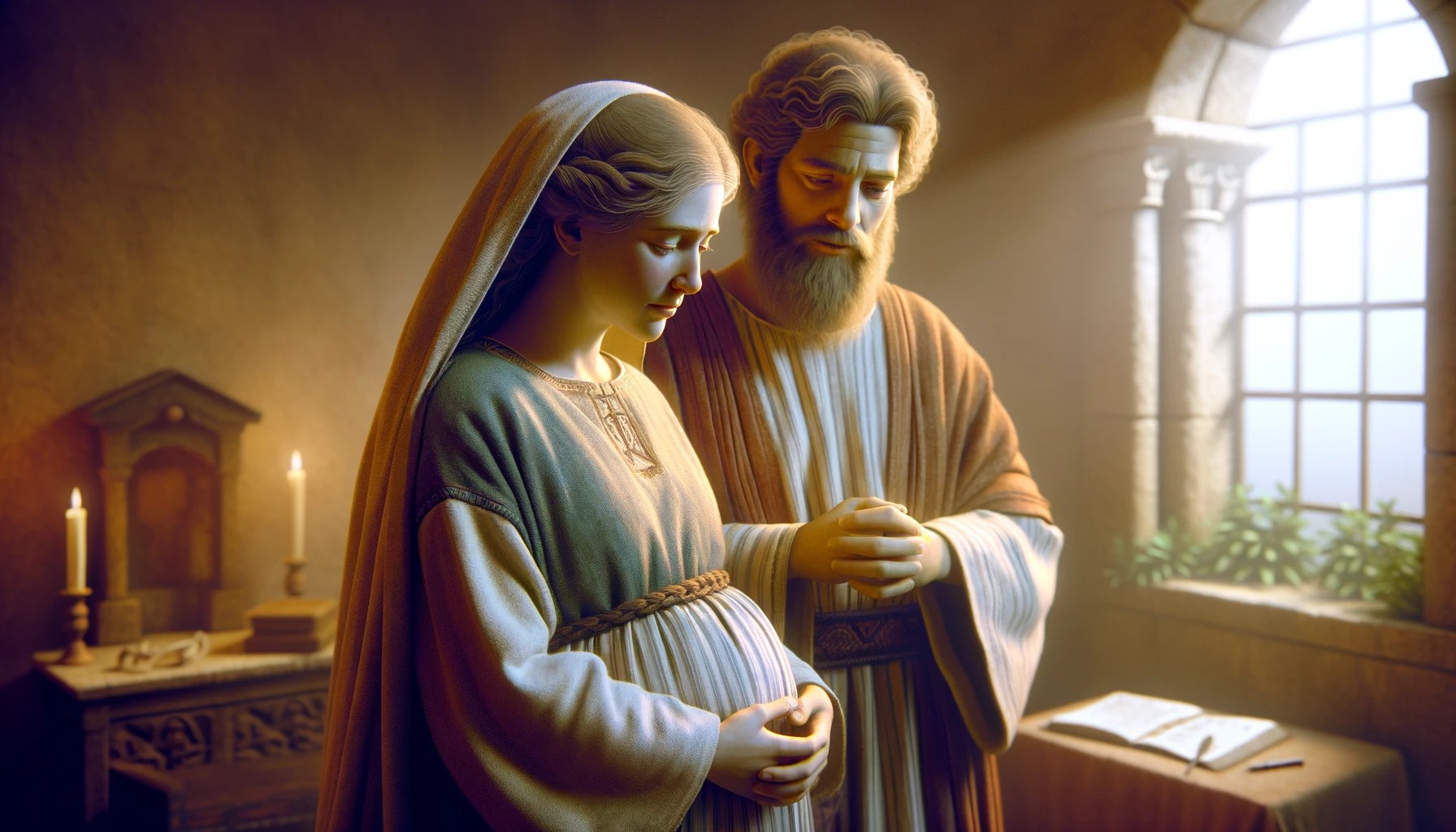Home>Christian Videos>Bible Stories>What City Was Jesus Christ Born In


Bible Stories
What City Was Jesus Christ Born In
Published: March 1, 2024
Peter Smith, Editorial Director at Christian.net, combines deep insights into faith, politics, and culture to lead content creation that resonates widely. Awarded for his contributions to religious discourse, he previously headed a major organization for religious communicators, enhancing dialogue on faith's societal impacts.
Discover the biblical account of Jesus Christ's birthplace and the significance of Bethlehem in the Bible. Explore the city where the nativity story unfolded. Gain insights into the historical and spiritual importance of this iconic location.
(Many of the links in this article redirect to a specific reviewed product. Your purchase of these products through affiliate links helps to generate commission for Christian.net, at no extra cost. Learn more)
Table of Contents
Introduction
What city was Jesus Christ born in? This question has been a topic of fascination and debate for centuries. The birthplace of Jesus Christ holds significant religious and historical importance for Christians around the world. Understanding the city in which Jesus was born provides insight into the historical context of his life and the events that unfolded thereafter. In this article, we will delve into the historical context of Jesus Christ's birth, explore the debate over the location of his birth, examine the evidence for Bethlehem as his birthplace, and consider other theories about the city of Jesus Christ's birth.
Read more: What Continent Was Jesus Christ Born In
The Historical Context of Jesus Christ's Birth
-
The Roman Empire: At the time of Jesus Christ's birth, the region of Judea was under Roman rule. The Roman Empire had a significant influence on the political and social landscape of the area. This context is crucial in understanding the circumstances surrounding Jesus Christ's birth and the subsequent events in his life.
-
The Jewish People: The Jewish people were living under Roman occupation, and there was a sense of longing for a messiah who would deliver them from oppression. This longing for a savior was deeply rooted in the religious and cultural fabric of the Jewish community.
-
The Prophecies: The Old Testament of the Bible contains prophecies about the coming of a messiah who would be born in Bethlehem. These prophecies, such as those found in the book of Micah, played a significant role in shaping the expectations surrounding the birth of Jesus Christ.
-
The Cultural and Religious Landscape: The region of Judea was a melting pot of diverse cultures and religious beliefs. Understanding the cultural and religious landscape of the time provides valuable context for the events surrounding Jesus Christ's birth.
-
The Census Decree: According to the Gospel of Luke, the Roman Emperor Augustus decreed a census that required people to return to their ancestral towns. This decree is cited as the reason for Joseph and Mary's journey to Bethlehem, where Jesus was born.
-
The Role of Prophecy and Divine Intervention: For Christians, the birth of Jesus Christ is not merely a historical event but a fulfillment of divine prophecy and intervention. The belief in the miraculous nature of Jesus's birth is a fundamental aspect of the historical context surrounding his arrival on Earth.
Understanding the historical context of Jesus Christ's birth provides a rich tapestry of political, social, religious, and cultural factors that set the stage for the emergence of Christianity and its profound impact on the world.
The Debate Over the Location of Jesus Christ's Birth
The debate over the location of Jesus Christ's birth has been a subject of scholarly inquiry and religious discussion for centuries. The primary point of contention revolves around whether Jesus was born in Bethlehem, as traditionally believed, or in another location. This debate has given rise to various theories and interpretations, each seeking to uncover the true birthplace of Jesus. The significance of this debate extends beyond historical curiosity, as it holds profound religious and cultural implications for Christians worldwide. The following are key points that fuel the debate over the location of Jesus Christ's birth:
-
Historical Documentation: One aspect of the debate centers on the availability of historical documentation that definitively confirms Bethlehem as the birthplace of Jesus. Skeptics argue that the historical evidence is inconclusive and that alternative locations cannot be discounted based on the existing historical record.
-
Religious Tradition: The traditional belief in Bethlehem as the birthplace of Jesus is deeply ingrained in Christian religious tradition. However, the reliance on tradition alone may not suffice to settle the debate, as it is essential to critically examine historical and archaeological evidence to corroborate this belief.
-
Archaeological Discoveries: Archaeological findings in Bethlehem and other potential locations have been a focal point in the debate. Proponents of Bethlehem as the birthplace of Jesus point to archaeological evidence, such as the Church of the Nativity, as supporting the traditional belief. Conversely, proponents of alternative locations scrutinize archaeological findings to challenge the established narrative.
-
Historical Context: The historical context of the Roman Empire and the region of Judea during the time of Jesus' birth adds complexity to the debate. Understanding the political and social dynamics of the era is crucial in evaluating the plausibility of Bethlehem as the birthplace of Jesus.
-
Theological Implications: The debate over the location of Jesus Christ's birth also carries theological implications. It intersects with questions of faith, interpretation of religious texts, and the significance of specific geographical locations in the narrative of Jesus' life.
-
Alternative Theories: Various alternative theories propose alternative locations for the birth of Jesus, including Nazareth and other sites within the region. These theories draw from different interpretations of historical and biblical sources, contributing to the ongoing discourse surrounding the birthplace of Jesus.
The debate over the location of Jesus Christ's birth reflects the intersection of historical inquiry, religious tradition, and cultural significance. While the question of the precise location may remain unresolved, the ongoing dialogue underscores the enduring impact of Jesus' birth and the quest to unravel the historical truth behind this pivotal event.
The Evidence for Bethlehem as the Birthplace of Jesus Christ
-
Biblical Accounts: The New Testament of the Bible, particularly the Gospels of Matthew and Luke, explicitly state that Jesus was born in Bethlehem. These accounts, considered sacred texts by Christians, form the foundation of the belief in Bethlehem as the birthplace of Jesus Christ.
-
The Gospel of Matthew: Matthew's Gospel provides a detailed narrative of the events leading to Jesus' birth in Bethlehem. It describes how Joseph and Mary, in obedience to a decree from Caesar Augustus, traveled to Bethlehem, where Jesus was born. This account has been central to the traditional belief in Bethlehem as the birthplace of Jesus.
-
The Gospel of Luke: Similarly, the Gospel of Luke corroborates the association of Jesus' birth with Bethlehem. It recounts the story of the census decree and the subsequent journey of Joseph and Mary to Bethlehem, culminating in the birth of Jesus in a manger. These accounts are foundational to the Christian belief in the Bethlehem nativity.
-
Prophecy Fulfillment: The Gospel of Matthew specifically references the prophecy from the book of Micah in the Old Testament, which foretold the birth of the Messiah in Bethlehem. The fulfillment of this prophecy through the birth of Jesus in Bethlehem is a significant factor in affirming the traditional belief.
-
Archaeological Findings: The Church of the Nativity in Bethlehem stands as a prominent archaeological and historical site associated with the birth of Jesus. This ancient church, built over the traditional site of Jesus' birth, serves as a tangible link to the historical and religious significance of Bethlehem as the birthplace of Jesus Christ.
-
Historical Tradition: The longstanding tradition within Christianity, dating back to the early church fathers and the development of Christian pilgrimage sites, has consistently upheld Bethlehem as the birthplace of Jesus. This historical tradition has contributed to the enduring belief in Bethlehem as the sacred location of Jesus' nativity.
-
Cultural and Religious Significance: Bethlehem holds profound cultural and religious significance as the birthplace of Jesus Christ. It has been revered as a sacred site for pilgrimage and worship, attracting countless believers who seek to connect with the historical and spiritual legacy of Jesus' birth in Bethlehem.
-
Continued Reverence: The ongoing veneration of Bethlehem as the birthplace of Jesus, manifested through religious rituals, commemorations, and the preservation of historical sites, reflects the enduring impact of this belief on Christian faith and practice.
The evidence supporting Bethlehem as the birthplace of Jesus Christ encompasses biblical accounts, prophecy fulfillment, archaeological findings, historical tradition, and the enduring cultural and religious significance of this sacred location. These factors collectively contribute to the steadfast belief in Bethlehem as the revered site of Jesus' nativity.
Other Theories About the City of Jesus Christ's Birth
-
Nazareth: Some scholars and researchers propose that Jesus Christ was born in Nazareth, rather than Bethlehem. This theory challenges the traditional belief and draws from interpretations of biblical texts and historical context. Advocates of the Nazareth theory argue that the Gospels' references to Jesus as "Jesus of Nazareth" indicate that Nazareth was his actual birthplace. They also point to the absence of explicit references to Bethlehem in certain biblical accounts as a basis for reconsidering the traditional narrative.
-
Other Locations in Judea: Beyond Bethlehem and Nazareth, alternative theories suggest various locations within the region of Judea as the potential birthplace of Jesus. These theories stem from diverse interpretations of historical and archaeological evidence, as well as critical analysis of biblical texts. Sites such as Hebron and Jerusalem have been proposed as alternative birthplaces, prompting scholarly discourse and exploration of the historical and geographical context of Jesus Christ's birth.
-
Symbolic Interpretations: Some theological perspectives offer symbolic interpretations of the birthplace of Jesus Christ, emphasizing the spiritual significance of his arrival rather than a specific geographical location. These interpretations underscore the universal and timeless message of Jesus' birth, transcending the emphasis on a singular city or town. While not dismissing the historical inquiry, these perspectives invite contemplation of the broader spiritual implications of Jesus' birth.
-
Mythological Allegories: Certain interpretations within religious and mythological studies view the birth narratives of Jesus Christ as symbolic or allegorical rather than strictly historical. From this perspective, the focus shifts from identifying a literal city of birth to exploring the metaphorical and allegorical dimensions of the birth stories. This approach invites contemplation of the deeper symbolic meanings embedded in the narratives of Jesus' birth, enriching the theological and philosophical discourse surrounding his significance.
-
Cultural and Regional Influences: The diversity of theories about the city of Jesus Christ's birth reflects the cultural and regional influences that have shaped interpretations of this pivotal event. Different cultural and religious traditions have contributed to a spectrum of beliefs and theories regarding the birthplace of Jesus, highlighting the multifaceted nature of religious and historical inquiry.
-
Continued Dialogue and Exploration: The exploration of alternative theories about the city of Jesus Christ's birth underscores the ongoing dialogue and scholarly inquiry within religious studies and historical research. While the traditional belief in Bethlehem as the birthplace of Jesus remains central to Christian faith, the consideration of alternative theories enriches the exploration of the historical and cultural context of Jesus' birth, fostering a deeper understanding of its significance.
The diverse range of theories about the city of Jesus Christ's birth reflects the complexity and richness of religious and historical inquiry, inviting ongoing exploration and dialogue within scholarly and religious communities.
Read more: Why Jesus Christ Was Born
Conclusion
The birthplace of Jesus Christ has been a subject of profound significance, sparking centuries of debate, exploration, and religious devotion. While the traditional belief in Bethlehem as the birthplace of Jesus remains deeply rooted in Christian tradition and scripture, alternative theories and interpretations continue to fuel scholarly inquiry and theological discourse. The historical context of Jesus Christ's birth within the Roman Empire and the region of Judea provides a backdrop for understanding the complexities of the debate over his birthplace. The evidence supporting Bethlehem as the birthplace of Jesus, including biblical accounts, prophecy fulfillment, archaeological findings, historical tradition, and cultural significance, has sustained the enduring reverence for this sacred location. However, the exploration of alternative theories, such as the proposal of Nazareth and other locations within Judea, reflects the dynamic nature of religious and historical inquiry, inviting ongoing dialogue and exploration. Ultimately, the quest to unravel the city of Jesus Christ's birth encompasses a tapestry of historical, religious, and cultural dimensions, underscoring the enduring impact of his life and legacy on the world.
